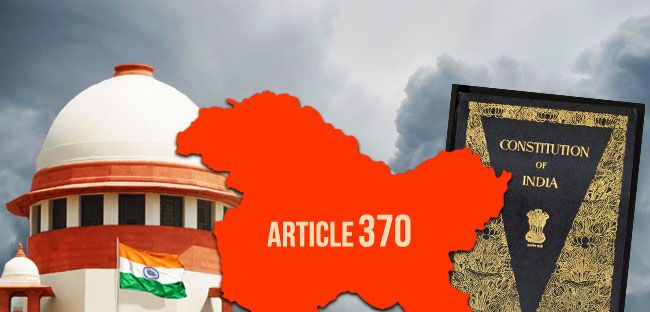- Reams and reams have been written, spoken to, critiqued, satirized, ridiculed, and picturized on how the Indian judicial system functions in disposing of cases in the country. The tardy progress of a monumental number of cases desperately crying for disposal needs no further elaboration either. It is no secret that ordinary people can neither keep knocking on the doors of the judiciary for quick redressal nor they are bestowed with adequate wherewithal to sustain the years of running around seeking justice. The sheer number of undertrials languishing in jails for want of speedy delivery of justice speaks volumes about how ineffective the system is present for those seeking to receive judgment/relief expeditiously.

PC: Hana Saada
- Not that there are fewer efforts undertaken by the authorities concerned on the matter. Unfortunately, few measures such as introducing fast-track courts, dedicated appellate courts, and the ilk have yielded limited results owing to the humongous pendency of cases. It is to be noted that the Supreme Court is burdened with voluminous cases, including petty ones, thereby restricting its Constitutionally mandated role of upholding/interpreting the tenets of Articles. Against this backdrop, the Attorney General of India’s plea to set up at least four regional courts of appeal (RCAs) to address the Supreme Court’s pendency burden and allow it to train its focus on Constitutional matters is an idea that’s been on the table for several years, and worth considering.
- It is interesting to note the incumbent Chief Justice of India mentioning the said altering of the judicial hierarchy merits the government’s consideration without appearing to reveal his mind. The AG’s argument for 15-judge RCAs in different geographical zones and a 15-judge SC with three five-judge constitution benches has definite persuasive value. Moreover, pendency in SC has increased from 58,000 in April 2019 to 70,000 presently. Over 400 constitution bench matters like Article 370 and CAA are pending before 5, 7, and 9-judge benches, respectively. Ideally, constitutional matters would be heard by benches comprising more judges.

PC: Radhika Roy
- Unfortunately, the SC is saddled with adjudicating petty divorce cases to bail pleas and many miscellaneous appeals against orders of lower courts. Simply put, the SC judges do not have the luxury of indulging in trivial cases. In comparison, the US Supreme Court is very selective, and the appeal load is borne by 13 circuit courts under it. And the statistics corroborate the same as 5411 cases were filed before it in 2019-20, only 73 were argued in court and 69 were disposed of. Coming back to the subject matter, of course, a law setting up RCAs would invariably stipulate them as final courts of appeal.
- Also, ensuring that the quality of its judges is on par with SC appointments is critical too. If not, discontented litigants will knock on the doors of the SC’s extensive powers of judicial review as conferred by the Constitution despite RCA rulings. Add to the mix the slow filling up of HC vacancies, the judicial adjudication becomes tedious. Therefore, setting up an All India Judicial Service is an absolute necessity to boost the lower judiciary’s quality. The SC should concur and join hands in establishing the RCAs at the earliest.






